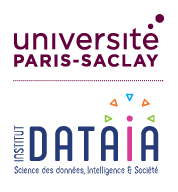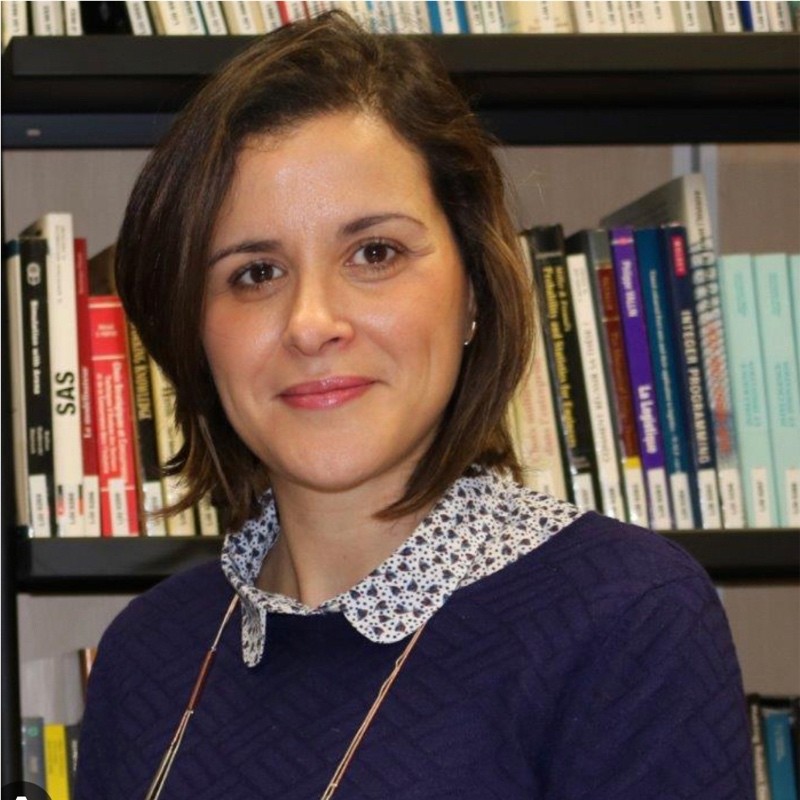With the support of

Artificial Intelligence
Broaden your knowledge in a rapidly advancing area of Science and Engineering and collaborate with peers from around the world! The summer school on Artificial Intelligence, hosted by CentraleSupélec, combines lectures, tutorials and hands-on sessions in such areas as machine learning, deep and reinforcement learning, computer vision and learning on networks. The programme also includes team-based competitions, along with networking opportunities with professionals of the research and innovative industry sectors, as well as cultural and social activities.
Skills in Python and programming are required for the programme. If you are not familiar with Python, you will need to learn the basics prior to the start of the Summer School. In order to prove their level in Python, students will be asked to provide in the registration section a project previously completed demonstrating their programming skills.
Join us from June 30th to July 11th 2025 at CentraleSupélec Paris-Saclay campus!
Please visit our Tuition & Fees page for specific information.
Learning outcomes
Objectives & Learning Outcomes
The Summer School in AI aims to introduce students to the field of Artificial Intelligence:
- by covering a wide range of topics, methodologies and related applications;
- by giving students the opportunity to obtain hands-on experience in dealing with real-world problems;
- with educational visits to companies and institutions where core AI research is taking place.
We expect that, by the end of the Summer School in AI, students will have:
- a good understanding of key topics and methodologies in machine learning and artificial intelligence in general, including deep learning, computer vision, reinforcement learning, natural language processing and network analysis;
- strengthen their programming skills in Python via implementing and evaluating various machine learning algorithms and working on a real-world data challenge.


Broaden your skills
Boost your knowledge on Artificial Intelligence

Earn credit
Gain 3 credits and a certificate upon successful completion of the programme

Make friends
Work in teams with peers from all over the world
Programme description
Summer School programme description
Introduction to Artificial Intelligence
This course will give an overview of the large field of Artificial Intelligence by first tracing its history and then by presenting the main Artificial Intelligence approaches: reflex-based, state-based, variable-based and logic-based. Students will apply these approaches during a practical lab session.
Introduction to Machine Learning (Richard Combes)
This course presents the fundamentals of statistical learning theory, from fundamental limits, to algorithms, their analysis and practical implementation. Important concepts such as Vapnik-Chervonenkis theory, Empirical Risk Minimization, Stochastic Gradient Descent algorithms and Kernel methods will be presented in details. A lab session will enable students to apply the theoretical contents to data.
Machine Learning on Networks (Jhony Giraldo)
Networks (or graphs) have become ubiquitous as data from diverse disciplines can naturally be mapped to graph structures. Characteristic examples include social networks (e.g., Facebook, Twitter), information networks (e.g., the Web) as well as technological networks (e.g., the Internet). The problem of extracting meaningful information from large scale graph data in an efficient and effective way has become crucial and challenging with several important applications and towards this end, graph mining and learning methods constitute prominent tools. The goal of this course is to present recent and state-of-the-art methods and algorithms for analyzing, mining and learning large-scale network data, as well as their practical applications in various domains (e.g., the web, social networks, recommender systems).
Generative AI and Natural Language Processing (Hakim Benkirane)
Introduction to Deep Learning (Stergios Christodoulidis)
This course will provide students with the principles of representation learning and deep learning by covering the following subjects: Neural Networks, Backpropagation and stochastic gradient optimisation, Auto-encoders, Hyper-parameters and training tricks for neural networks, regularization, Deep Belief Networks and Deep Boltzmann Machines. Students will apply these approaches during a practical lab session.
Introduction to Computer Vision (Hugues Talbot)
In this course students will survey the major aspects of Artificial Intelligence usage and techniques in the context of medical imaging. Medical imaging is a fascinating and major application area for Artificial Intelligence/Machine Learning where the stakes are high and the impact on society can be lasting and strong. However, this is also an application area fraught with challenges. In particular, is it important that AI results in this area be trustworthy, repeatable and auditable. Physicians are usually not happy with black-box decisions that come with no explanations. Fortunately many novel techniques exist to produce exactly this kind of results, which will be discussed in detail.
Intro to Computer Vision and Medical Imaging (Hugues Talbot)
Your content goes here. Edit or remove this text inline or in the module Content settings. You can also style every aspect of this content in the module Design settings and even apply custom CSS to this text in the module Advanced settings.
Reinforcement Learning (Stergios Christodoulidis)
Your content goes here. Edit or remove this text inline or in the module Content settings. You can also style every aspect of this content in the module Design settings and even apply custom CSS to this text in the module Advanced settings.
Artificial Intelligence and Explainability (Wassila Ouerdane)
Artificial Intelligence and Enviornment (Gilles Faÿ)
Your content goes here. Edit or remove this text inline or in the module Content settings. You can also style every aspect of this content in the module Design settings and even apply custom CSS to this text in the module Advanced settings.
Class
Organizer
Organizer
Academic Staff
Academic Staff

Miguel Tavares Coimbra
Associate Professor

Richard Combes
Assistant Professor

Jhony Giraldo
Assistant Professor

Céline Hudelot
Professor

Hugues Talbot
Professor

Hakim Benkirane
PhD Candidate

Wassila Ouerdane
Associate Professor

Maria Vakalopoulou
Assistant Professor

Stergios Christodoulidis
Assistant Professor

Gilles Faÿ
Professor
Register Today!
Fill in the online registration form
